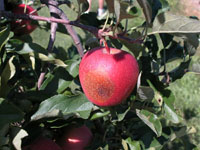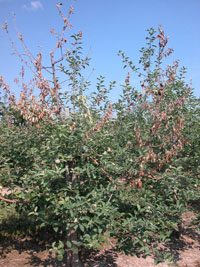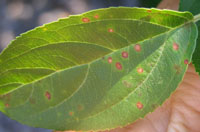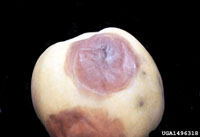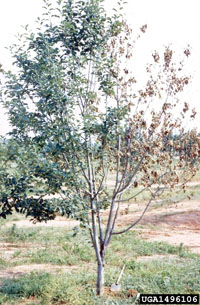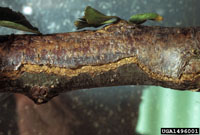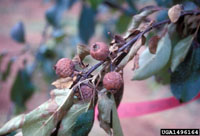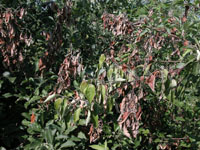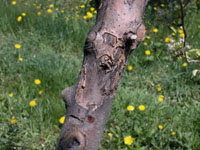Extension > Garden > Diagnose a problem > What's wrong with my plant? > Fruit > Apple > Rotted fruit
Apples > Fruit > Rotted fruit
1 of 3
Black Rot
Botryosphaeria obtusa
- Fruit is rotted but remains firm
- Fruit may become mummified and remain on tree
- Round leaf spots with a purple border and tan center
- Large brown spots with brown rings form on fruit
- Branch cankers can be sunken, reddish brown or rough looking or cracked bark; cankers may remain small or enlarge to become several feet long
- Leaves on girdled branches wilt, die and turn brown
- Common on stressed trees and trees infected with fire blight
- More information on Black Rot
2 of 3
White Rot
Botryosphaeria dothidea
- Sunken brown spots on fruit, can grow to rot part or all of fruit
- Fruit rot is soft, watery and extends to the core of the apple
- Small blister like spots on branches exude, watery fluid
- Branch infections grow to cracked, flakey, orange canker
- Leaves on girdled branches wilt, die and turn brown
- More information on White rot
3 of 3
Fire Blight
Erwinia amylovora
- Infected fruit are shriveled and discolored
- Young shoots bend over forming a "shepherd's crook"
- Infected leaves wilt, turn gray then dark brown
- Infected blossoms first turn gray, then black
- Infected leaves and blossoms remain attached to the tree, often even in winter
- Branch cankers have dark ,sunken and cracked bark, sapwood is streaked reddish brown
- Drops of sticky honey colored liquid can be seen on infected plant parts in warm wet weather
- More information on Fire Blight



